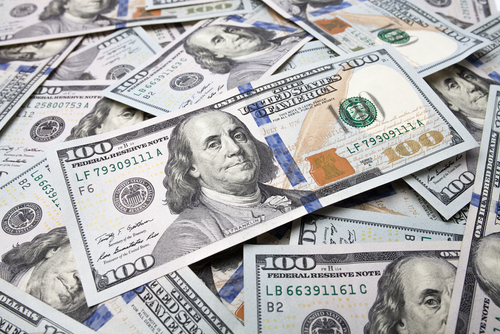About a quarter of money spent on recent state supreme court races came from outside groups, report says

Image from Shutterstock.com.
Special interest groups contributed 27% of the $39.7 million spent on state supreme court elections in 2017 and 2018, according to a report released Wednesday.
The money was spent on 48 judgeships in 21 states, according to the report by the Brennan Center for Justice, which was produced with research from the National Institute on Money in Politics. The report defines special interest funding as money that is not spent by the candidates themselves or by political parties.
The report is here, the Brennan Center has summaries here and here. Law360 has coverage.
The report names the top special interest groups providing judicial-election funding and notes that the source of the special interest money is often hidden or obscured.
Special interest groups that hide their donors’ identities tend to spend big on attack ads, said the report’s lead author, Douglas Keith, in a summary of the findings.
“We found that these groups spent $2 million in the 2017-2018 cycle on TV ads that attacked specific decisions by particular judges,” Keith said. “That pressure can make the candidates targeted by the ads more dependent on large donations in order to pay for their own ads, and research suggests this pressure can impact judicial decision-making. None of this is conducive to fair, unbiased jurisprudence.”
The report identified the top special interest groups spending on judicial elections as the Republican State Leadership Committee’s Judicial Fairness Initiative (spending $4.1 million), North Carolina Families First (spending $1.2 million), and Wisconsin Manufacturers & Commerce (spending $1.1 million).
The biggest source of secret funding to special interest groups was likely the Judicial Crisis Network, according to the Brennan Center. The conservative group said it spent $10 million on behalf of Brett M. Kavanaugh’s nomination to the U.S. Supreme Court. It likely contributed at least $3.8 million to state court elections, the Brennan Center said.
Spending on state supreme court elections by special interest groups was even higher in the 2015-2016 election cycle, when such spending amounted to 40% of total spending. But outside spending still surpasses any election cycle before the U.S. Supreme Court’s 2010 Citizens United decision, which struck down limits on corporate campaign spending.
The report offers some recommendations to avoid big-money influence. State courts can adopt ethics rules requiring judges to step aside from cases involving major campaign contributors and can require litigants to disclose money that they spent on a judge’s election when they appear before that judge.
In the longer term, the report says, states can can provide for public financing of judicial candidates or change the way they choose judges by adopting a publicly accountable appointment system.



